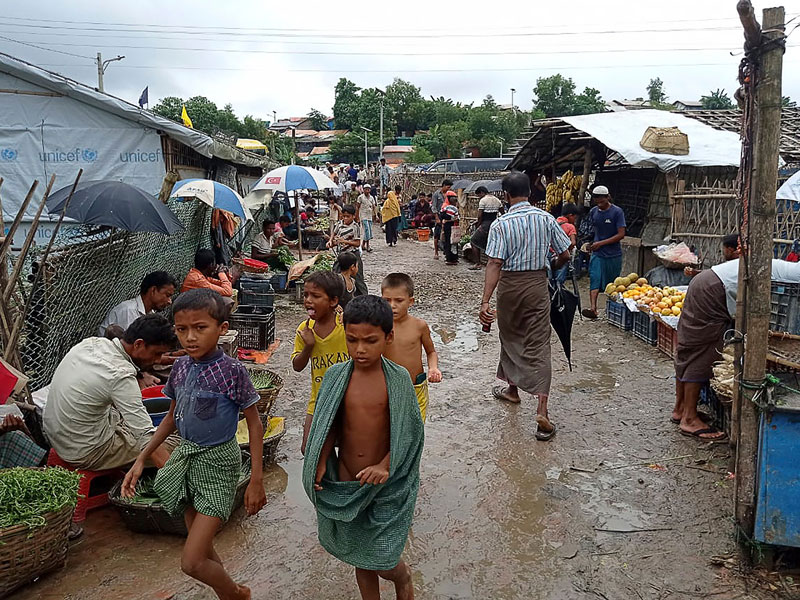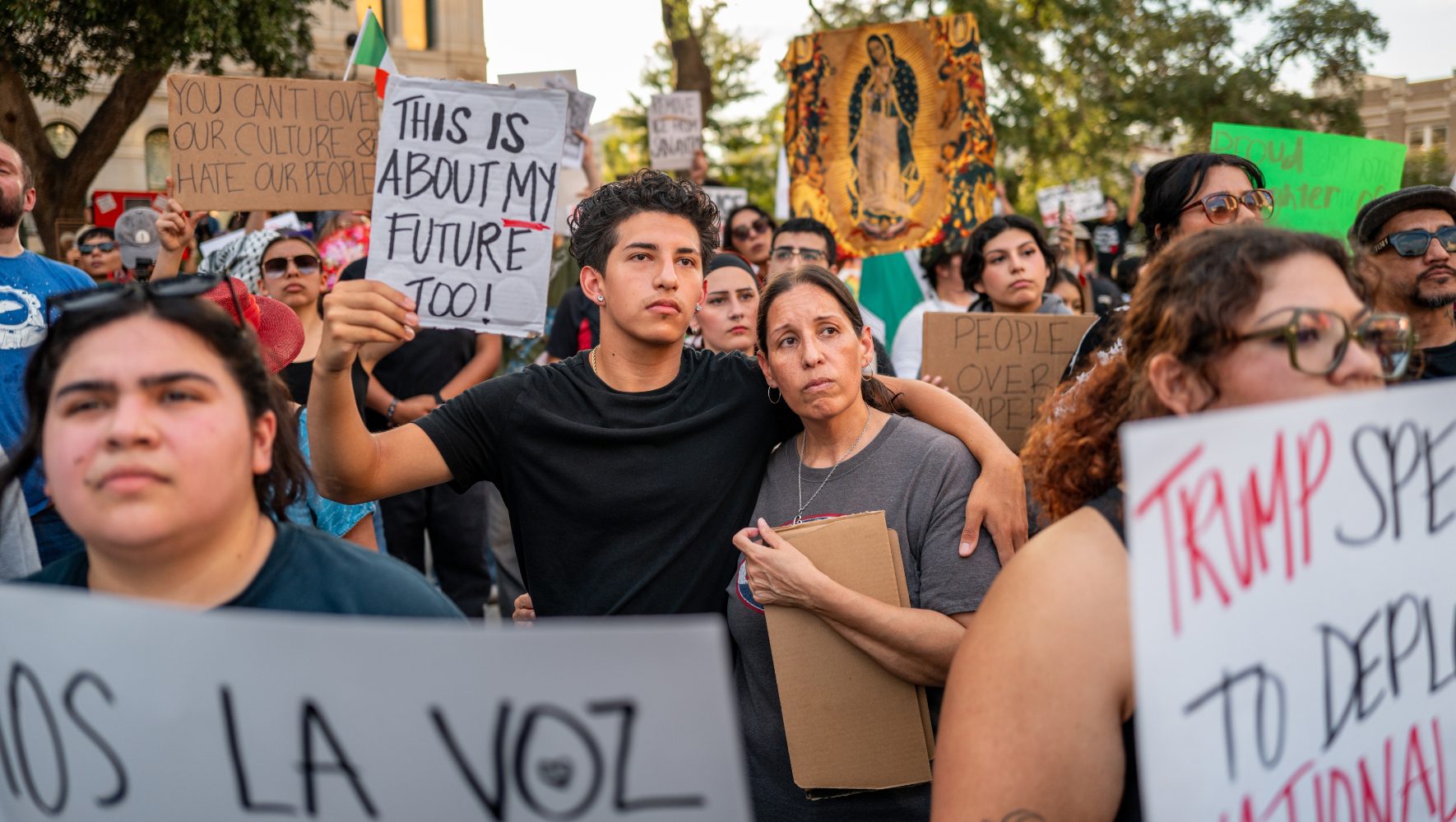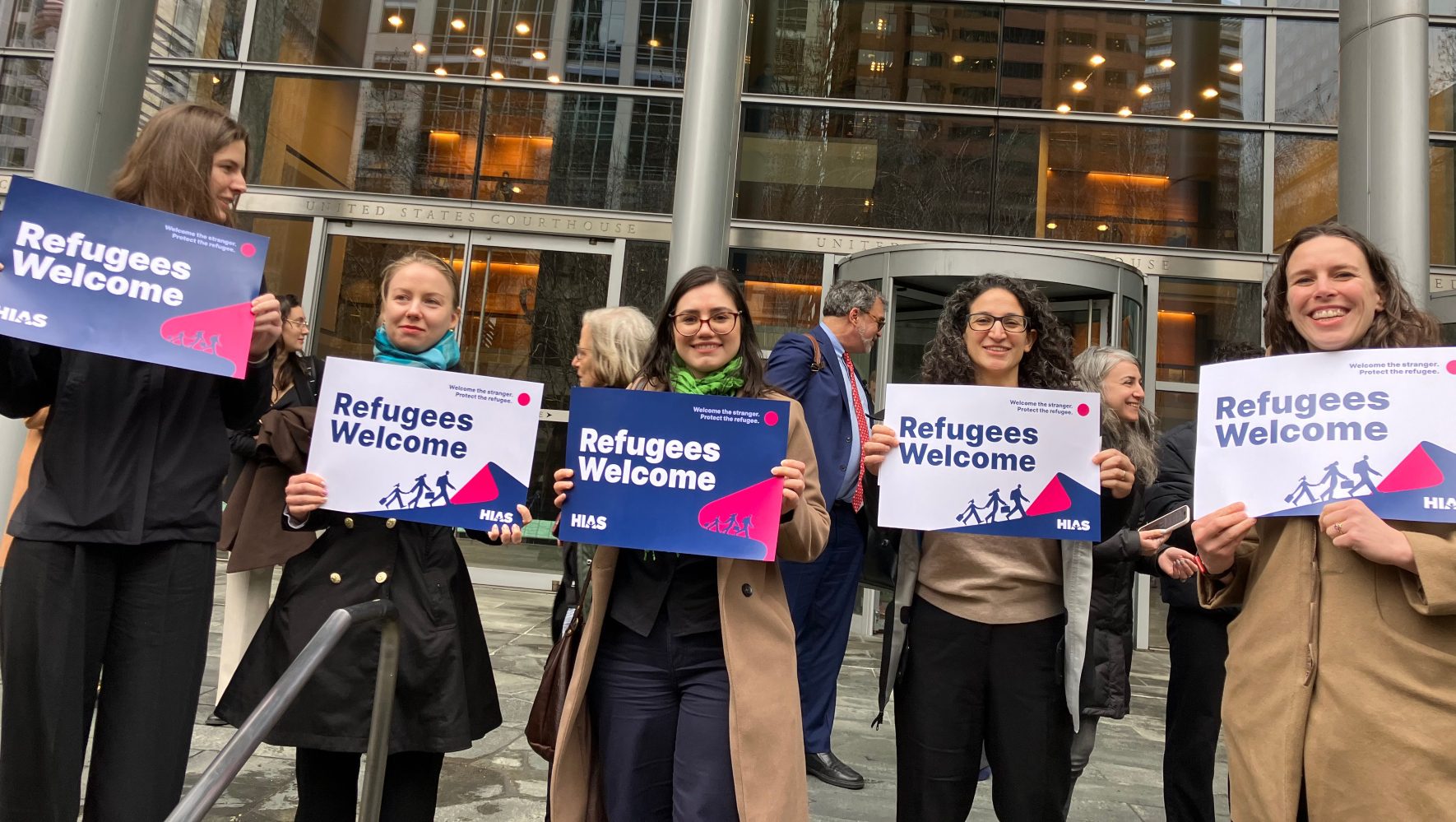It Was a Genocide Against the Rohingya
By Naomi Steinberg - Vice President, U.S. Policy and Advocacy
Mar 24, 2022

Rohingya refugees walk along a path at Kutupalong refugee camp in Ukhia, Cox's Bazar, Bangladesh, August 25, 2021.
(Tanbir Miraj / AFP via Getty Images)
On March 21, Secretary of State Antony Blinken announced that the United States officially recognizes that the Myanmarese military committed crimes against humanity and genocide against the Rohingya people in 2017.
In 2017, barbarism was on full display in Myanmar, forcing more than 700,000 Rohingya people to flee their homes in Rakhine State and make the perilous journey to Bangladesh. They were running from murder, torture, mass rapes, and villages being burned to the ground. They were fleeing widespread and systematic efforts at the hands of the military to destroy them. What the U.S. is now saying is what HIAS knew already — they were fleeing genocide.
I visited the sprawling refugee camps in Cox’s Bazar, Bangladesh, in 2018 and I talked with survivors. I remember where we were standing. I remember what I was wearing. I remember the oppressive heat. I remember because it is impossible to forget when someone tells you that they witnessed an armed militia member cut a baby out of its mother’s body and then toss the baby into a raging fire. I also remember a little boy standing in front of a classroom filled with young, Rohingya children. He was spunky, louder than everyone else when he was singing, and clearly marching to the rhythm of his own drum. I have to wonder how he is today, after years of living in the world’s largest refugee camp with no real prospect of returning home to a country that was recently taken over in a military coup.
The military junta that overturned the democratically elected government in Myanmar a little more than a year ago is run by the same people who orchestrated the genocide and crimes against humanity targeting the Rohingya people. This week’s genocide determination by the U.S. government is a sign to the current rulers in Myanmar, and to the rest of the world, that accountability is important and calling a genocide a genocide is important. It wasn’t a series of skirmishes. It wasn’t a spate of violence. It was a genocide, and the people at the helm of the genocide must be held to account.
Since 2017, HIAS has advocated for the U.S. government to make this determination. We did this as a proud member of the Jewish Rohingya Justice Network, and we did it in collaboration with Rohingya activists, as well as refugee and human rights organizations. We joined this chorus of voices calling for a genocide determination because there is no better way to shine a light on the atrocities that have been, and continue to be, committed in Myanmar. We hope that this determination will inspire other countries to reach the same conclusion and apply additional pressure on the Myanmarese military. It should, of course, also not be forgotten that this designation is a sign to the Rohingya still trapped in Myanmar, the hundreds of thousands trapped in Bangladesh, and Rohingya refugees scattered around the world that the United States believes them and stands with them in their pursuit for lasting peace and justice.
In the face of this determination, HIAS renews our call for the U.S. to welcome Rohingya refugees from Bangladesh and also lead an international effort among resettlement countries to resettle robust numbers of Rohingya refugees. The vast majority of Rohingya refugees are still holding out hope that someday they will be able to return home to Myanmar in safety and in dignity. However, for those who will never be able to return, including political activists and other particularly vulnerable refugees, resettlement must be a meaningful option for them.
The new genocide determination, as important as it is, was never the end goal. It should now spur additional action, including through international legal mechanisms, to be more responsive to the long-term needs of the survivors of the Rohingya genocide. It should serve as a reminder to all of us that genocide is not a part of our distant shared past that can only be studied in history books. It is contemporary and still a real threat.
Secretary Blinken stood in the U.S. Holocaust Memorial Museum when he noted the designation of the Rohingya genocide was the eighth such U.S. designation since the Holocaust. It is our fervent hope that the world will no longer turn away when there are signs of genocide, and will instead collectively take the necessary steps to ensure that there will not be the need for a ninth genocide declaration in the future.



